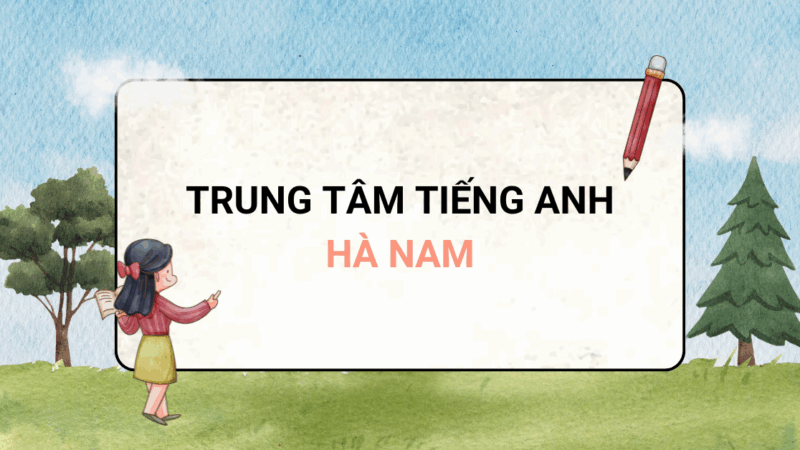Học đánh đàn: Các bước cơ bản cho người mới & cách nâng cao kỹ năng hiệu quả

Learning to play the piano is a form of musical art that brings melodies unique to each learner. If your child loves this subject, please help them choose the right instrument and support them according to the instructions in this article!
- Dạy bé học toán lớp 4 phép trừ: Cách tính và các dạng bài tập thường gặp
- Thi VSTEP ở đâu? Danh sách trung tâm tổ chức thi tại Việt Nam
- Cấu tạo từ tiếng Việt và những kiến thức về từ cần nắm rõ
- Kiến thức cơ bản về tính chất giao hoán của phép cộng chi tiết nhất
- Vượt qua khó khăn tiếng Anh là gì? 8386 lời chúc ý nghĩa bằng tiếng Anh
Learn to play the piano & great benefits
Your child’s childhood will be boring if they only have access to science subjects full of letters and numbers. So what if parents give their children the opportunity to learn another musical instrument? It will be very interesting and bring many great benefits to your baby!
Bạn đang xem: Học đánh đàn: Các bước cơ bản cho người mới & cách nâng cao kỹ năng hiệu quả
-
Relax your mind: After long hours of studying at school, practicing musical instruments and enjoying the music you create will help your child relax and relieve the mental stress of having to take in a lot. knowledge of letters and numbers at school.
-
Emotional balance: Young children often have difficulty regulating emotions, are easily irritable, stubborn, and change on a whim. Music will help your child concentrate and bring a comfortable mood to coordinate his emotions easily.
-
Increase the ability to perceive music: With knowledge of music theory, children can explore different variations of sounds and rhythms and feel them more clearly.
-
Expanding knowledge about music: Through learning and playing musical instruments, children can expand their understanding of musical culture between countries, understand the origin of musical instruments, and know more famous artists. their reputation and masterpieces.
-
Increase flexibility between hand-eye coordination: To learn a musical instrument well, your child will need to practice hand-eye coordination and the ability to sense rhythm. With each different high and low tempo, the hands need to move flexibly with the appropriate level of light and weight to create the perfect melody.
It can be seen that learning the piano is a perfect art that parents can apply in the process of raising children. Take advantage of your child’s summer school or free time to learn a musical instrument with your child!
Basic steps to start learning to play the piano
Similar to other art subjects, learning to play the piano requires preparation before learning and the right method during the learning process for the practice to be effective.
Before learning the piano
To make the process of learning the piano smooth and progress quickly, parents should help their children choose a musical instrument that suits their interests and personality. In addition, you also need to consider your child’s ability to absorb knowledge to choose an instrument with moderate difficulty.
Choose the type of piano you want to learn
Most people who learn to play the piano will choose one of the following types of instruments such as: Piano, organ, guitar, ukulele, violin,… but each type of instrument is different in terms of playing technique, principles of sound creation, and suitability. suitable for each genre of music, etc. Therefore, if you want to help your child choose the right musical instrument, you can ask a few questions such as:
-
Do you love a particular type of guitar? Why?
-
What genre of music do you like the most? Why?
-
Which songs do you like the most?
Xem thêm : Hoạt động ngoại khóa tiếng Anh là gì? Tổng hợp từ vựng tiếng Anh chủ đề hoạt động ngoại khoá
Along with asking questions and consulting the child’s opinion, parents should consult with the music teachers at the center. If they know someone who is a music expert, even better. With this step, you can ask for advice first and then discuss with your child. Once you have your child’s opinion, discuss it with the teacher to make the final decision.

Find suitable learning resources for children
Learning to play the piano is not difficult but it is not easy either, this subject requires hard work, perseverance and good musical perception. For children who are new to school, they should combine studying at the center or 1:1 with teachers and practice at home to get used to it quickly.
In addition to studying directly with teachers, children can learn more through books, teaching videos on Youtube channels, music teaching websites, etc. to practice more on their own or consolidate parts of music theory that are not clearly understood when studying online. class.
Build a workout schedule
As mentioned, playing the piano fluently requires hard work and perseverance, so you should work with your child to arrange a piano practice schedule at home that fits your child’s study schedule. Note, do not force your child to practice with high intensity, do not scold him when he does not practice well, do not ask him to play long or difficult cards,… so that he can self-evaluate and adjust his practice. accordingly.
During the process of learning the piano
Most new children are sent to school by their parents at the center or 1:1 with private teachers, so their child’s learning path has already been built. The role of parents is to accompany their children when practicing at home. Basically, your child will need to review knowledge & change music practice methods to progress faster.
Learn basic music theory
Music theory is understood as music theory that provides children with simple concepts so they can understand, interpret and use music flexibly. Some knowledge your child may have learned at school such as: Musical notes, time signatures, chords (units of pitch counting), diacritics, diacritics,…

Focus on basic techniques
Along with theory, lessons will incorporate learning piano technique. Depending on each type of instrument, your child will need to learn movements from easy to difficult, starting from getting familiar with the parts of the instrument to coordinating their hands and eyes to play a complete piece of music.
For example, with stringed instruments, children need to grasp how to hold the instrument firmly, recognize & play the correct strings with the right intensity, how to use their fingers on each string, etc. With instruments such as organ, Piano, your child will start by memorizing the keys, getting used to how to press the keys, and how to move their fingers on the keys to play the piano fluently.

Practice from basic to advanced
Let your child start getting acquainted with the piano with short songs, many simple tones, and a moderately slow speed to get used to the operations of playing the piano. Moreover, when playing short and slow songs, children can practice their ability to perceive music by listening carefully to the melodies in that music.
Instructions for choosing the right type of guitar for beginners
Choosing the right type of piano is probably the most important step and also the most difficult step before learning to play the piano. Therefore, parents need to help their children learn and decide based on the following criteria:
Choose according to your preferences
If your child really likes a particular type of instrument, then help him focus on learning that type of instrument. In case you can’t decide or your child has many choices, take your child to a music teaching center and discuss with the teacher in charge to make the best decision.
Consider budget
Compared to many subjects, learning the piano takes up a significant portion of the cost because in addition to studying at the center, children need to have their own musical instrument at home to practice more. Some types of instruments such as piano or electric guitar are more expensive than ukulele or harmonica, so parents can consider before letting their children take lessons.

Consider the type of size
Parents need to consider the type and size of the instrument to choose the instrument that suits their needs, house area, etc. If you want an instrument that can help your child carry it easily, you can choose a ukulele. or small guitar, or harmonica. On the other hand, with large instruments such as organs and pianos, parents should consider an instrument with a size suitable for the house area and function corresponding to the child’s level of use.
Seek advice from teachers
With the above issues such as preferences, budget, type and size of piano, parents can consult music teachers. If you send your child to study at the center, ask the teacher about a similar type of piano to the one taught in class to make practicing easier.
Xem thêm : Tổng hợp đề thi thử trạng nguyên tiếng Việt lớp 4 và bí quyết giúp bé đạt điểm cao
Test before buying
In case you have chosen a specific type of instrument: guitar, piano or violin, etc., you will need to consider which model to choose from among the many models at the store. To make the best choice, let your child directly test the guitar models and allow him or her to choose the type of guitar that he or she feels most comfortable and easy to use. Most musical instruments are quite expensive, so choosing carefully will help parents optimize costs instead of thinking that the more expensive the instrument, the better.

How to improve your playing skills
With any subject, to improve skills, learners need to have a serious attitude combined with correct practice methods. The suggested learning methods below will help you and your child have effective piano lessons.
Choose reliable learning sources
After determining the appropriate type of piano, parents need to find a suitable music center or teacher so that their child’s learning can progress smoothly.
-
If you choose a music teaching center, you need to consult information about classes, curriculum, learning instruments, and reviews from previous students.
-
If you choose a 1:1 teacher, you can remember acquaintances to introduce you (if any) or ask for opinions, refer to music teaching groups on Facebook, zalo,… Most reviews are on social networking sites. The association is practical, so you can feel secure and consider carefully before letting your child attend.

Exercise regularly
Along with choosing good teachers, children need to practice regularly at home, especially during the period of getting used to the piano. Parents, please help your child arrange a piano practice schedule that fits the child’s school schedule and activity schedule!
Focus on practicing basic techniques
Don’t skip the basic techniques! Make sure your child masters how to hold the instrument, how to play the strings, how to change fingers, and other basic techniques. This is an important foundation to help you go further.
Practice playing different songs
At the same level, parents should encourage their children to play many different songs to feel the difference in tempo, melody, etc. of each song. However, it should be noted that with each piece of music, children need to practice for a certain period of time until they are proficient. You should not emphasize quantity but focus on the quality of the music you perform.

Record the music and evaluate it yourself
This step is quite similar to learning to sing and speak English. For each piece of music, parents should help their children record the entire process of playing the music. Then, let your child listen again to detect and correct errors or unsatisfactory passages. This is a way for your child to self-assess his progress and accurately identify areas that need improvement in the process of learning to play the piano.
Find friends or a group of friends to study together
In case you choose to study at the center, your child will learn with many friends and can find a suitable group of friends to practice with. Let’s create conditions for our children to learn and progress together every day! Don’t forget to prepare snacks as a reward to help your children have more fun and avoid fatigue during exercise.
It can be seen that learning to play the piano is most important in choosing the right type of instrument, finding a good teaching center or teacher, combined with a child’s hard-working and serious learning attitude. However, it is indispensable for parents to help their children practice at home, so please accompany and support your child’s hobbies to make their childhood meaningful with fun moments of learning and playing. with family.
Nguồn: https://truongnguyentatthanh.edu.vn
Danh mục: Giáo dục





